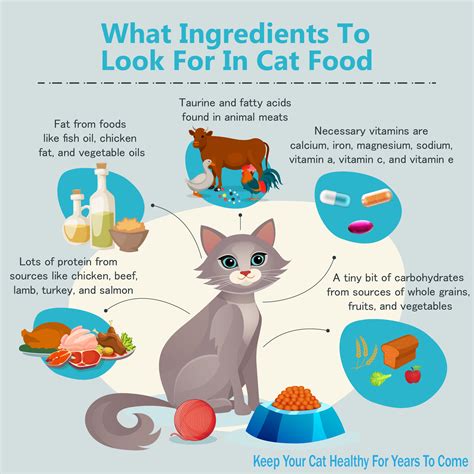What’s the Difference?
As a cat owner, it’s crucial to understand the differences between cat nutrition and vitamins. While both are essential for your feline friend’s health, they play distinct roles in their overall well-being.

Nutrition: The Foundation of Health
Cat nutrition encompasses the macronutrients and micronutrients required for growth, energy production, and bodily functions. Macronutrients, such as carbohydrates, proteins, and fats, provide calories and building blocks for tissues. Micronutrients, including vitamins and minerals, act as catalysts for various metabolic processes.
Vitamins: Essential for Specific Functions
Vitamins are organic compounds that the body cannot produce in sufficient quantities. They are classified into two categories:
- Water-soluble vitamins: Dissolve in water and are easily absorbed and excreted (e.g., vitamin C, B vitamins).
- Fat-soluble vitamins: Dissolve in fat and are stored in the body (e.g., vitamins A, D, E, K).
Why Vitamins Matter to Cats
Vitamins are crucial for:
- Immune system function: Vitamins A and E strengthen the immune system to fight off infections.
- Vision: Vitamin A is essential for vision, especially in dim light.
- Bone health: Vitamin D promotes calcium absorption and bone mineralization.
- Reproduction: Vitamins B9 (folate) and B12 contribute to healthy reproduction.
- Skin and coat health: Vitamins A and E maintain skin and coat integrity.
Benefits of a Balanced Diet
A balanced diet that meets your cat’s nutritional and vitamin needs offers numerous benefits, including:
- Increased lifespan: A healthy diet supports a long and active life.
- Improved immune function: Essential vitamins boost the immune system to protect against diseases.
- Optimal weight: A balanced diet helps maintain a healthy weight, reducing the risk of obesity-related health issues.
- Shiny coat and healthy skin: Vitamins A, E, and B-complex support skin and coat health.
- Reduced risk of chronic diseases: A diet rich in vitamins and antioxidants may lower the risk of conditions such as heart disease and cancer.
How to Provide Optimal Nutrition
- Choose high-quality cat food: Look for foods containing real meat as the primary ingredient, along with essential vitamins and minerals.
- Avoid fillers: Foods with excessive fillers, such as grains and corn, may not provide the nutrients your cat needs.
- Consider wet food: Wet food contains higher moisture content, which can benefit cats with sensitive stomachs or hydration issues.
- Offer a variety of foods: Rotate different types of cat food to provide a balance of nutrients and flavors.
- Supplement wisely: Consult with your veterinarian before giving your cat supplements, as excess vitamins can be harmful.
Conclusion
Understanding cat nutrition and vitamins is vital for ensuring the well-being of your feline companion. By providing a balanced diet that meets their specific requirements, you can support their immune function, promote optimal growth and development, and enhance their overall health and happiness.





















